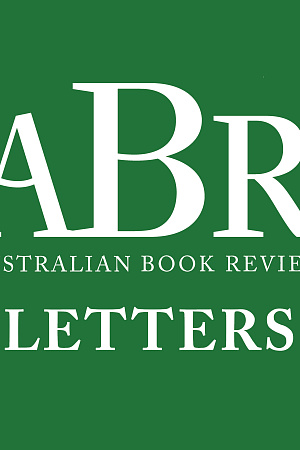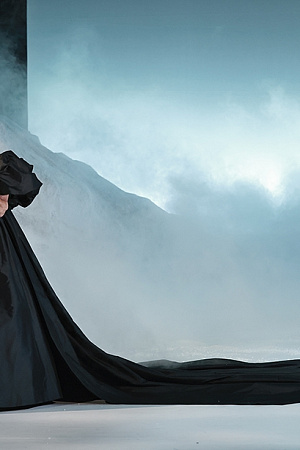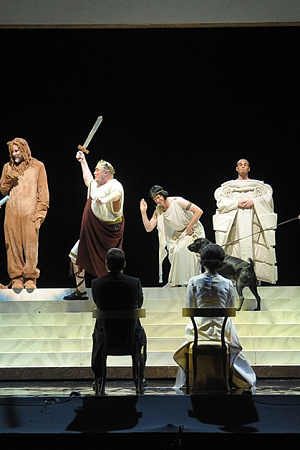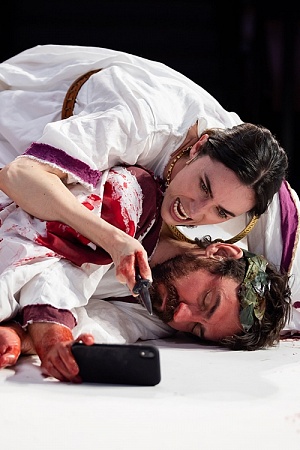Romeo and Juliet (Bell Shakespeare) ★★★
Everything, it seems, depends on Juliet: for nothing can be ill, if she be well cast. And if she not be well cast? The question is an idle one, because in Kelly Paterniti we have an excellent Juliet. She is vibrant and original. Whatever faults this new Bell Shakespeare production may have, in her they are redeemed.
Even so, I might have wished it was not Romeo and Juliet. In the last two years, Bell Shakespeare has sent us As You Like It, Hamlet, and A Midsummer Night's Dream. Later this year we will get Othello. This seems like pretty unambitious fare. I am tempted to repeat what the English critic Max Beerbohm said of an almost identical programme more than a hundred years ago: much as I love these plays, I do not wish to see them again.
Basta, though. Cautious programming is no doubt a reflection of the current arts funding landscape. Romeo and Juliet it must be. And, yes, Paterniti redeems even this. All in all, director Peter Evans's production is compelling.
Continue reading for only $10 per month. Subscribe and gain full access to Australian Book Review. Already a subscriber? Sign in. If you need assistance, feel free to contact us.










Leave a comment
If you are an ABR subscriber, you will need to sign in to post a comment.
If you have forgotten your sign in details, or if you receive an error message when trying to submit your comment, please email your comment (and the name of the article to which it relates) to ABR Comments. We will review your comment and, subject to approval, we will post it under your name.
Please note that all comments must be approved by ABR and comply with our Terms & Conditions.